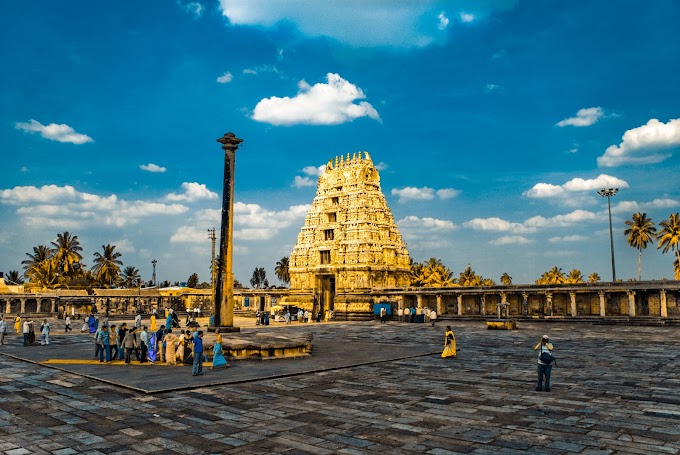Guru Purnima is a significant festival celebrated in various cultures and traditions to honor and express gratitude towards one's spiritual and academic teachers or gurus. The word "Guru" is derived from Sanskrit, where "Gu" means darkness and "Ru" means remover. Thus, a guru is considered the one who dispels the darkness of ignorance and imparts knowledge, wisdom, and guidance to their disciples.
Here are a few reasons why Guru Purnima holds immense importance:
Here are a few reasons why Guru Purnima holds immense importance:
Reverence for Teachers:
Guru Purnima provides an opportunity for students and disciples to pay homage to their teachers, acknowledging their immense contribution to their learning and personal growth. It is a day to express gratitude and show respect to the gurus who have played a crucial role in shaping their lives.
Spiritual Significance:
In spiritual traditions, a guru is regarded as a guiding light who leads disciples on the path of self-realization and enlightenment. Guru Purnima holds particular importance in Hinduism, where it is believed that Lord Shiva, the Adi Guru (first guru), transmitted his knowledge to his disciples on this auspicious day. It is also associated with the birth anniversary of the great sage Veda Vyasa, who is considered a guru of ancient Indian wisdom.
Celebration of Knowledge:
Guru Purnima is a celebration of knowledge and learning. It emphasizes the importance of education, not just in academic settings but also in various aspects of life. It encourages individuals to seek wisdom and guidance from learned teachers to expand their understanding and gain valuable insights.
Tradition and Cultural Significance:
Guru-disciple relationships have been an integral part of many cultures for centuries. Guru Purnima helps to preserve and promote these traditions, ensuring that the bond between teachers and students remains strong. It serves as a reminder of the importance of passing down knowledge from generation to generation.
Self-reflection and Transformation:
Guru Purnima encourages individuals to reflect upon their own growth and transformation under the guidance of their gurus. It is a time to evaluate one's progress on the spiritual or educational path and set new goals for the future. It also offers an opportunity to introspect, seek blessings, and make renewed commitments to personal development.
Guru Dronacharya:
List of Gurus in Ancient India
Guru Dronacharya:
Guru Dronacharya, a prominent character from the epic Mahabharata, stands out as an exemplar of archery mastery. He was the revered guru who imparted his knowledge and skills in archery to both the Kauravas and Pandavas, the two warring factions. Dronacharya's expertise was so extraordinary that his students, including the mighty warrior Arjuna, became formidable archers under his tutelage.
Guru Brihaspati:
Guru Brihaspati:
In Hindu mythology, Guru Brihaspati holds the esteemed position of the preceptor of gods or Devas. Known as the guru of celestial beings, Brihaspati possessed immense knowledge of scriptures, astrology, and religious rituals. He guided the Devas in their pursuit of righteousness, dispelling darkness and ignorance.
Guru Vashishta:
Guru Vashishta: 

Guru Vashishta, a revered sage, played a significant role in ancient Hindu mythology. He served as the guru of Lord Rama, the seventh avatar of Lord Vishnu. Vashishta's teachings and wisdom shaped Lord Rama's character, imparting virtues of righteousness, duty, and devotion. His guidance helped Lord Rama in his epic journey to uphold righteousness and defeat evil.
Guru Parashurama:
Guru Parashurama:
Guru Parashurama, considered the sixth avatar of Lord Vishnu, was renowned for his exceptional skills in warfare, especially wielding the axe. He was a fierce warrior and an adept guru who trained several illustrious students in the art of combat. Parashurama's teachings were instrumental in producing some of the greatest warriors of ancient times.
Guru Shukracharya:
Guru Shukracharya:
Guru Shukracharya, the guru of the Asuras or demons, was revered for his expertise in mystical arts and spiritual knowledge. He possessed the power to revive the dead and had deep insights into the secrets of immortality. Shukracharya's teachings played a significant role in empowering the Asuras and aiding them in their battles against the Devas.









